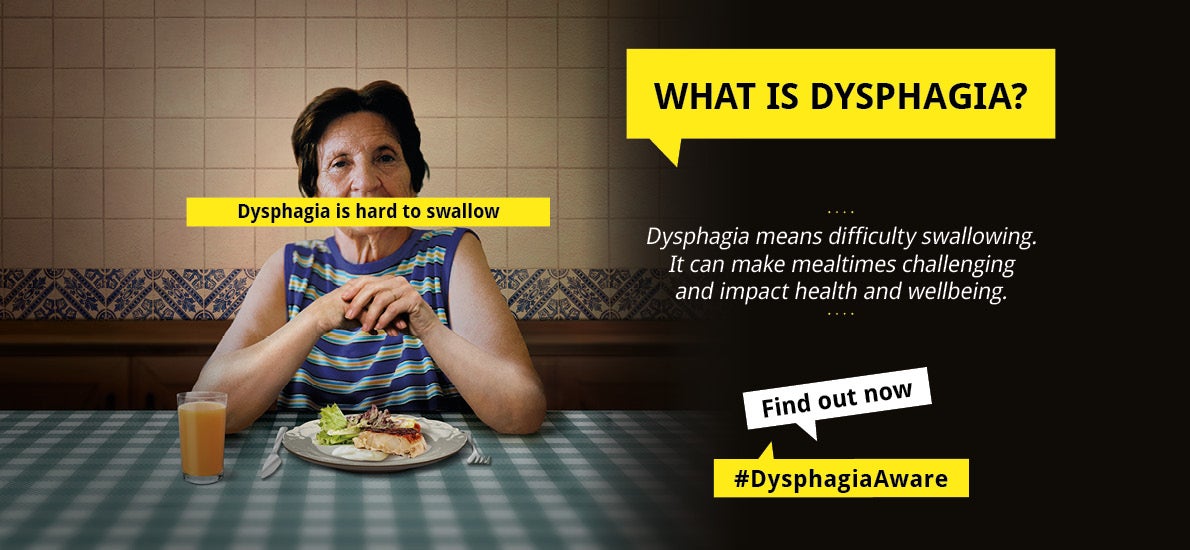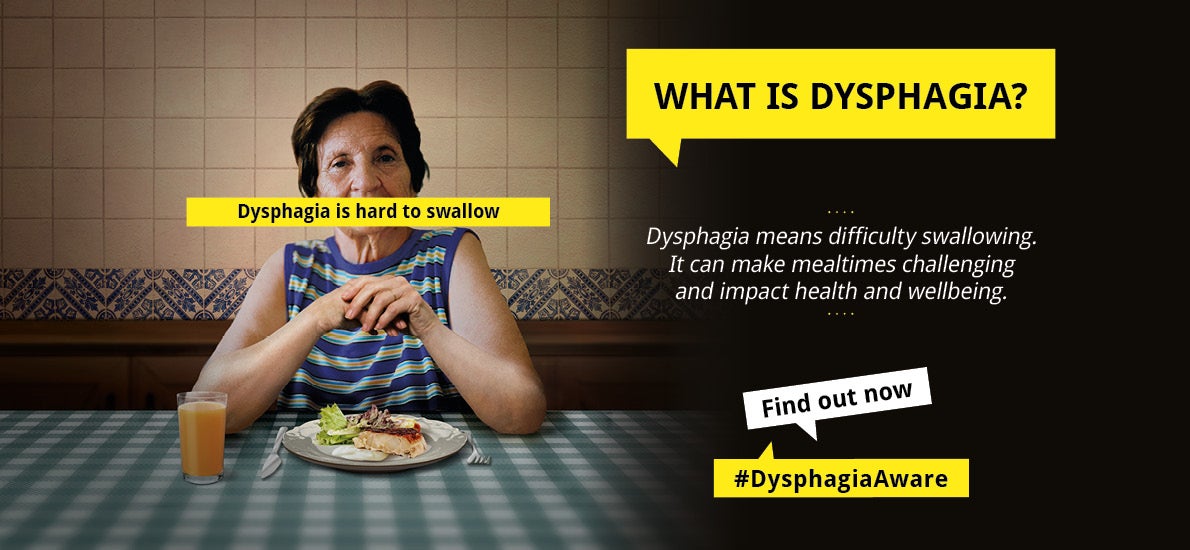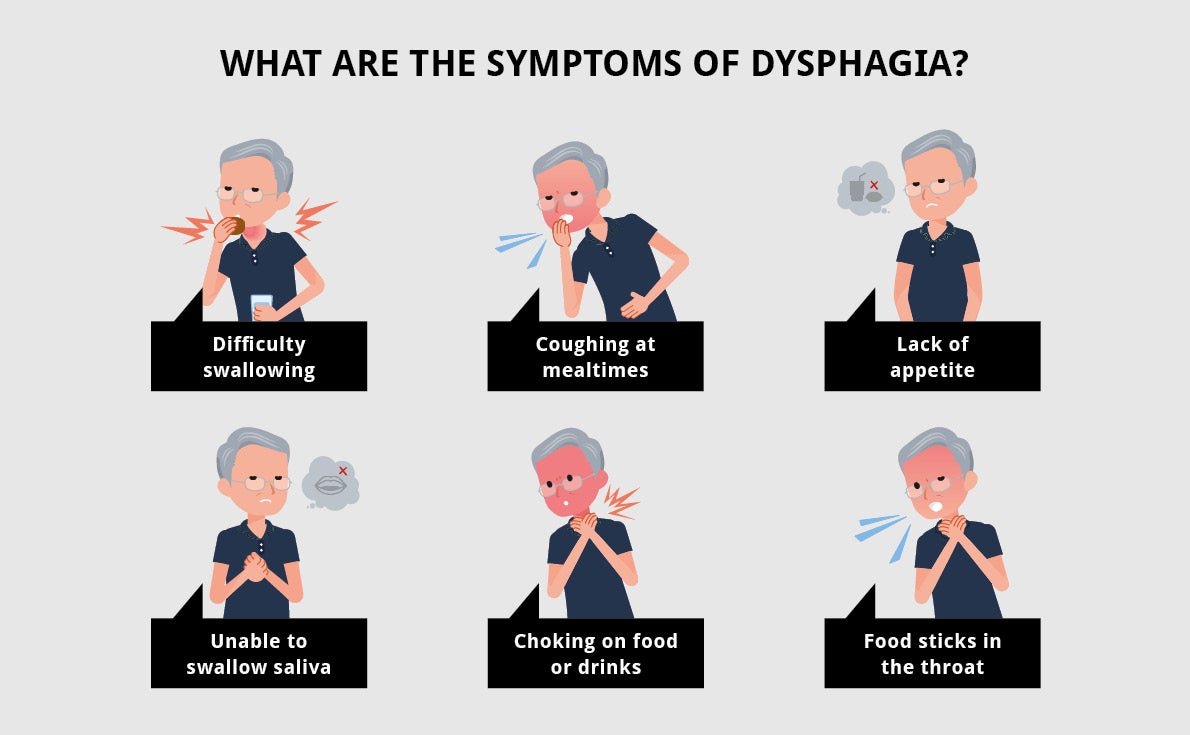

IS IT DYSPHAGIA?
Dysphagia is a medical term used to describe any symptom of swallowing difficulty. It is often caused by an illness, condition or disease that affects the nerves and muscles in the tongue, mouth and throat, and leads to problems coordinating and/or controlling the swallow. The severity of swallowing difficulty can vary from person to person.
A range of disabilities and medical conditions can put people at higher risk of swallowing problems including stroke, Parkinson’s, Alzheimer’s, and some cancers. Dysphagia can negatively impact health and wellbeing so it’s important to spot the signs early and speak to your healthcare professional if you have any concerns about swallowing difficulty. A qualified Speech Pathologist can provide a dysphagia assessment.
USE SCREENING TOOL TO ASSESS YOUR RISK


WHO DOES DYSPHAGIA AFFECT?
Dysphagia can affect persons of any age, including children, but is more common in older people due to general frailty or an increased chance of having a disability or condition associated with swallowing difficulty. Here are some conditions that are associated with dysphagia:
- Neurological disorders1,2 (e.g. Stroke, Alzheimer’s, Parkinson’s and Dementia)
- Head and neck cancer3
- Neuromuscular disorders4,5 (e.g. Cerebral Palsy, Multiple Sclerosis)
- Trauma to the head or spine6
- Genetic syndromes7
- Medication-related (e.g. persons taking antipsychotics)8
USE SCREENING TOOL TO ASSESS YOUR RISK
It’s important to spot the signs of dysphagia early and seek advice from your healthcare professional if you have any concerns about swallowing difficulty. A qualified Speech Pathologist can provide a dysphagia assessment.
SWALLOWING DIFFICULTIES CAN OFTEN GO UNDETECTED
Learn about how to spot the signs of swallowing difficulty as well as information and tips
to help you manage living with dysphagia.
SIGN UP
MORE INFORMATION ON DYSPHAGIA
Read more about dysphagia, how to manage the condition, and where to go to for additional support.
FIND OUT MORE